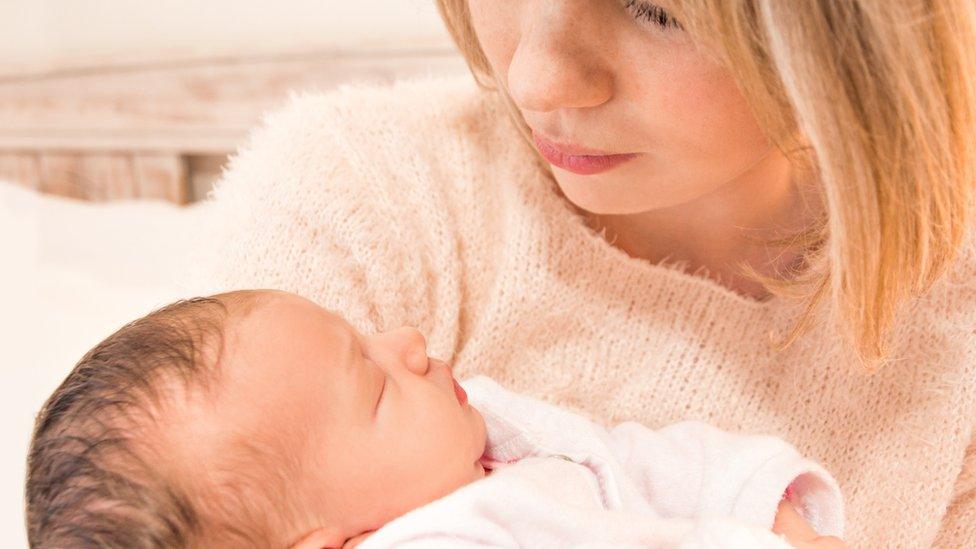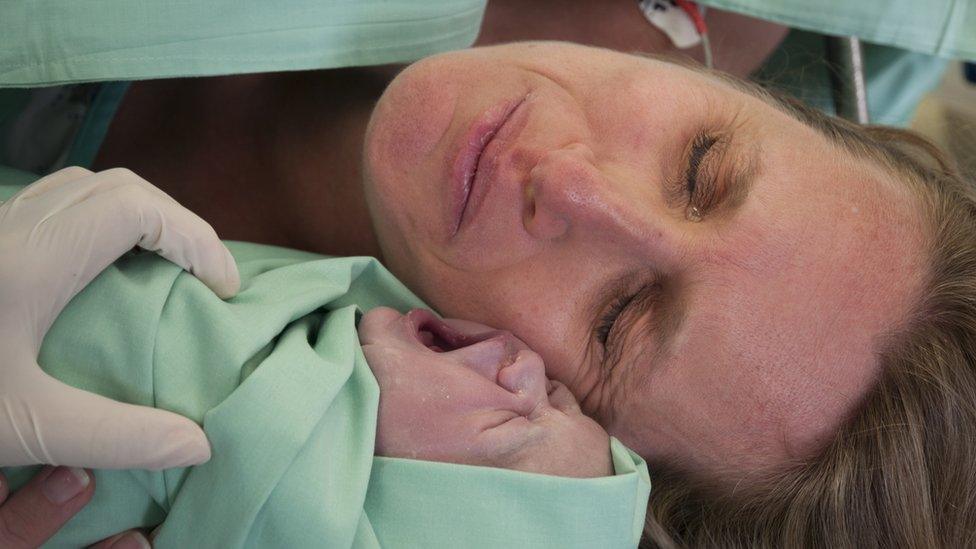What determines if a woman will have a Caesarean?
- Published

The number of babies born by Caesarean section has affected human evolution, a study has suggested.
The study suggests C-sections allow women with narrow pelvises to give birth when they or their babies' lives might previously have been at risk - and this means the genes for narrow pelvises are passed on to future generations, leading to further Caesarean deliveries.
But there are many other factors involved in whether or not a woman will have a C-section.
Some are commonly believed to determine if a woman will give birth naturally or via by Caesarean - but the evidence used by the NHS, external says they don't...
An X-ray of the pelvis won't be able to predict if you can give birth naturally
If you are short and have small feet, that doesn't mean your body is too petite for a natural birth
Likewise, carrying a big baby doesn't mean you will definitely need a Caesarean
If you have had a previous section, it doesn't necessarily mean you can't try for a natural birth next time
Things that won't make a difference...
walking around while in labour
not lying on your back during labour
having an epidural
getting into water during labour
having labour induced or having your waters broken
But a planned Caesarean might be necessary if...
you are expecting twins
your baby is in the breach (bottom-down) position
your baby is premature
you have a low-lying placenta
you have HIV, hepatitis or herpes
And sometimes an unplanned Caesarean delivery might be required when...
there is concern about your health or your baby's health
your labour is not progressing
you have vaginal bleeding during pregnancy or labour
you go into labour before the date of your planned Caesarean section
But if you are pregnant and have any concerns or questions, it's always best to speak to your doctor or midwife.
- Published7 December 2016

- Published7 September 2016
